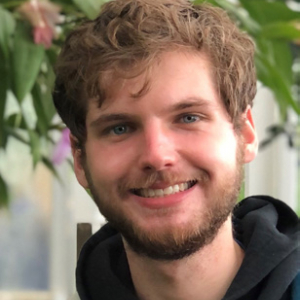Adam Johnson
Writing 101: Coming of Age and Happiness
Instructor: Sheryl Welte Emch
Shame, Validation, and the Pursuit of Authenticity
Biography
Who am I? Am I defined by my words and my actions? Or is my identity determined by my internal self-concept? Perhaps, the question is irrelevant, with my destiny written into my DNA and the instincts of my primate brain. Or, maybe, it’s not even worth considering, since I wake up each morning a different man than I was the day before.
These were the types of questions that I considered while taking Writing 101: Coming of Age and Happiness. For the first time in my life, I was provided with a community where it was O.K. to not have all the answers. I was presented with a judgment-free space to explore my ongoing coming of age story, allowing me to carefully examine the toxic behaviors that, for so long, had left me feeling like a spectator in my own life.
Growing up as a young gay kid in the South - discovering my political views, sexuality, stance on religion, and the conflict between my perfectionist ideals and flawed humanity - I protected myself from hypothetical social ridicule by conforming my personality to meet the expectations of those around me. Throughout my first year of college, I continued to avoid individualism and authenticity at all costs, as, ironically, I was terrified of ruining my chance at the fresh start college provides by being too much like myself.
Aided by the temporal and spatial distance I had gained from my childhood home, I was finally able to notice my behavior, which raised questions about the definition of my identity. Who am I behind the various personas I’ve constructed? Why did I feel the need to rely on them for so long? And, how can I allow my authentic self, whoever he is, to be free? My struggle to find the answers and work towards unconditional self-love is ongoing, and this essay was a difficult, but necessary first step. It is my sincere hope that my vulnerability will inspire others to move into their own relationships with radical openness, as it is up to each and every one of us to take responsibility for our minds and stop allowing ourselves to become accomplices in our own disconnection and discontent.
I would like to give a huge thanks to Professor Sheryl Welte Emch for her invaluable support, advice, and feedback throughout the writing process, as well as for creating one of the most memorable classes I’ve ever had the pleasure of being a part of. I’d also like to thank the rest of the Deliberations staff and editorial board for their guidance and encouragement. Additionally, none of this would have been possible without the willingness of my classmates to create a respectful and supportive environment which exemplifies the tremendous ability of honesty and vulnerability to bring us closer together.
